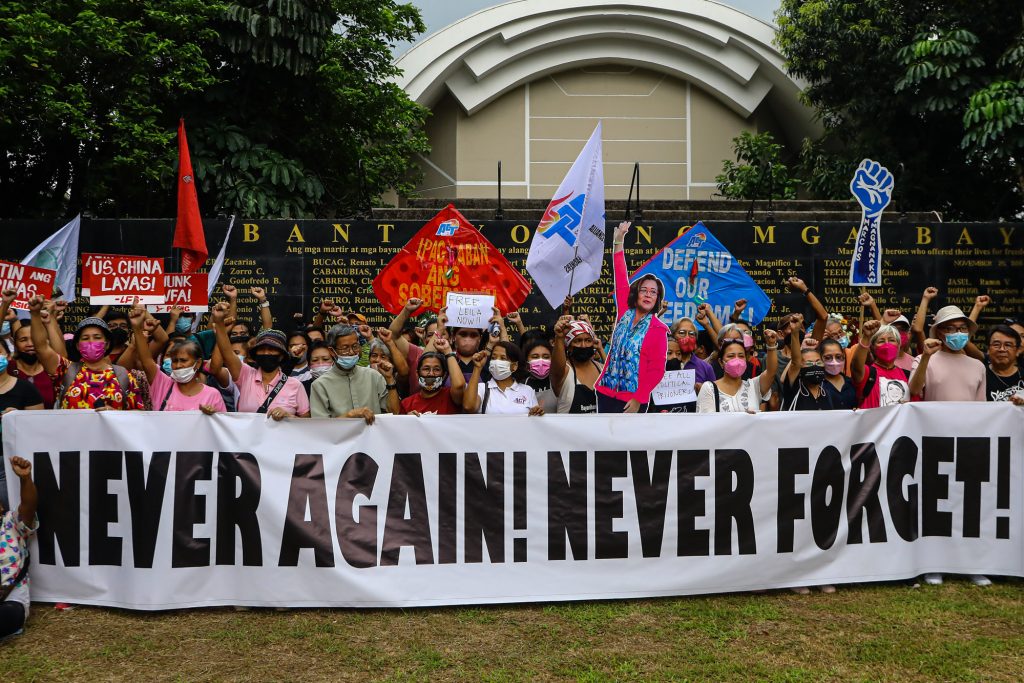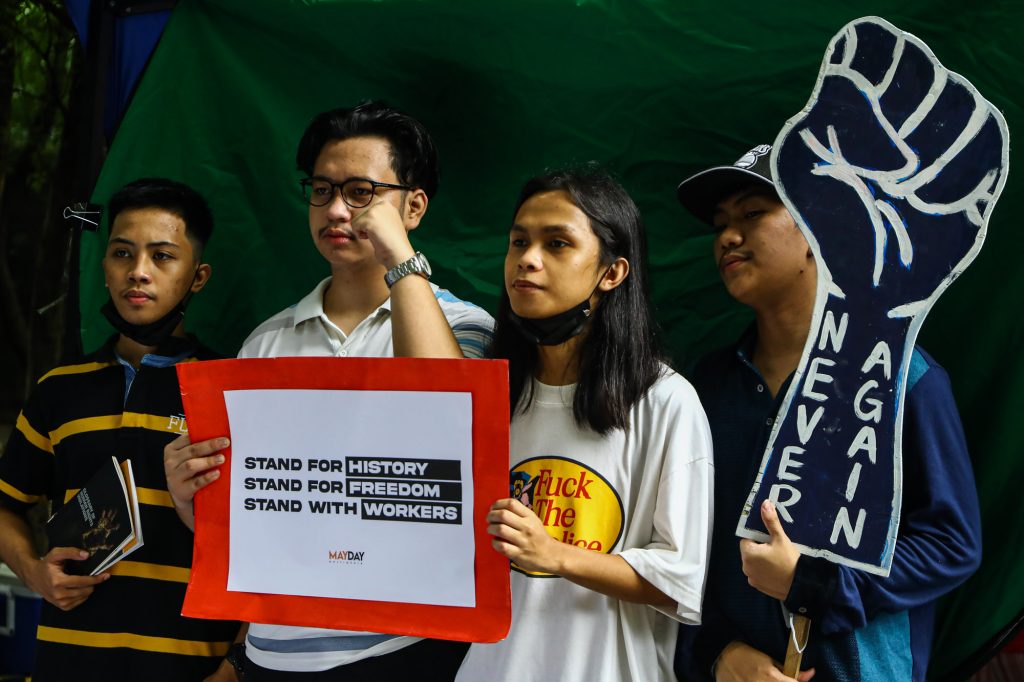Philippine Church leaders on Wednesday, September 21, renewed calls for justice, peace, and accountability as the country marked the 50th anniversary of the declaration of martial law in 1972.
“They say we should move on as it has been 50 years since the imposition of martial law, but there can be no moving on when there is no justice and accountability,” said Bishop Jose Colin Bagaforo of Kidapawan.
The prelate, who serves as national director of Caritas Philippines, said the lack of justice and accountability “results in more human rights abuses.”
He also decried what he described as “efforts to change history fueled by the desire to erase the tragedies of the past.”
Human rights organizations have recorded 3,257 victims of extrajudicial killings during the military rule of former president Ferdinand Marcos Sr., while about 34,000 individuals were tortured and 1,600 became victims of enforced disappearances.
Bishop Bagaforo said the list of human rights abuses “clearly demonstrated a pattern of widespread social injustice that favored the Marcos dictatorship.”
Many of those who were arrested included church workers, human rights defenders, legal aid practitioners, labor leaders, and journalists – “all trying to defend our democracy and freedom.”
Bishop Bagaforo urged Filipinos to “never again let the powers-that-be control the narratives” of the Filipino people.
“We must look out and defend the truth, fight misinformation and disinformation by supporting legitimate sources of news and information, and by demanding accountability and transparency from government officials, especially those who hold greater positions of power,” said the prelate.


Father Antonio Labiao Jr., executive secretary of Caritas Philippines, appealed to the Catholic faithful “to offer special prayers for all who gave up their lives during the dark days of martial law.”
“It was never easy trying to hide from a blinded government,” said the priest.
“During those years, I have seen how public officials allied to then president Marcos, can easily twist the facts and make you disappear,” said Father Labiao.
He said that if Filipinos are “not careful, vigilant, and become truly patriotic, the democracy and freedom that we enjoy today will soon be out of our hands again.”
The priest urged the faithful to honor the “martyrs of the darkest days in Philippine history” and light a “candle for truth and justice” at six in the afternoon on September 21.
Father Sanny Sanedrin, who served as executive secretary of the social action commission of the Catholic bishops’ conference during the martial law years, said the Church “must continue its mission” to advance human rights and the dignity of life.
The priest said the social action arm of the Catholic Church was one of the few agencies that “stood up against martial law” and “became the voice of the voiceless… and struggled for social transformation in Philippine society.”


Remembering the past
Bishop Broderick Pabillo of Taytay said Filipinos must always remember the atrocities of the martial law years “to learn from it” and “collectively fight any attempt to deny us again of our freedom.”
Bishop Ruperto Santos of Balanga said the country “must cherish” the lessons of the past and the people must “remain resolved and vigilant that it will never happen again.”
Bishop Antonio Nercua Ablon of the Iglesia Filipina Independiente stressed the “importance of studying and remembering every bit of our historical past.”
Bishop Ablon called on the faithful to “not miss our focus on the mission and ministry of the historical Jesus,” adding, “We must live out our faith and our prophetic ministry and get involved.”
“History does not repeat itself, but the mistakes of the past may be coming again to the misery of the people and society if we loosen the grip of historical facts and learn from them,” he said.
The prelate said the return of the Marcos family to political power “shows that somehow, we have significantly lost the grip of history.”
Most reports say that former president Marcos declared martial law on Sept. 21, 1972. Historians, however, said martial law took effect on September 23 of that year.
“Throughout the Martial Law period, Marcos built up the cult of September 21, proclaiming it as National Thanksgiving Day by virtue of Proclamation No. 1180 s. 1973 to memorialize the date as the foundation day of his ‘New Society,’” read an entry in the country’s official gazette.
It said that the propaganda effort “was so successful that up to the present, many Filipinos — particularly those who did not live through the events of September 23, 1972 — labor under the misapprehension that martial law was proclaimed on September 21, 1972.”
Martial law was lifted on Jan. 17, 1981, but the suspension of the writ of habeas corpus was continued.


